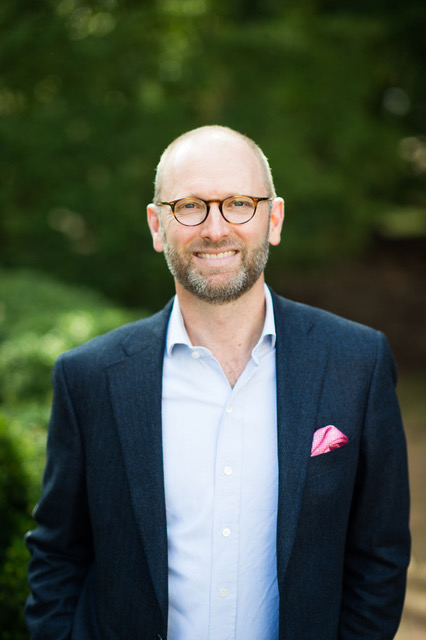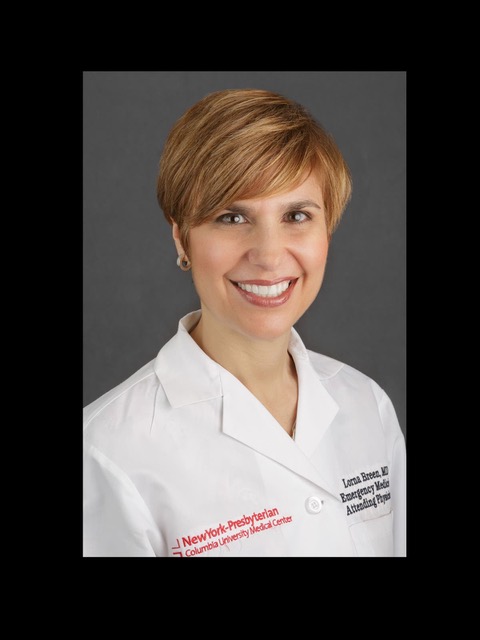
When Dr. Lorna Breen, an emergency-room physician at NewYork-Presbyterian Hospital, died by suicide in April 2020, her family and colleagues were cratered. She had been on the front lines of the huge, early COVID-19 surge before contracting the virus herself, and she confided in family that the anxiety, exhaustion and uncertainty were overwhelming—for her patients, but also for herself. After recovering, she returned to work, facing back-to-back shifts in multiple locations, but within a few days, she was gone.
In the midst of their grief, the family set up the Dr. Lorna Breen Heroes Foundation to provide mental-health support to health care professionals, and began working with legislators on laws and grants that could bolster the effort. Her brother-in-law Corey Feist talks about why help is urgently needed to address mental-health struggles for those working in health care.
You’ve worked in health care yourself for over 20 years and for the past 15 years as the CEO of a physician group at the University of Virginia. Given your expertise in the industry, what was your awareness level about this issue before April 2020?
For the last four years, I’d been hearing an increasing drumbeat from our physicians about burnout. They talked about the changing environment of health care expectations, and they were saying, “Practicing medicine is no longer what we signed up for. It’s moving away from the patient care we wanted. That’s burning us out.” We’ve been addressing that, but there’s much more complexity about stigma that I didn’t realize.
What are the factors increasing stigma around mental-health care?
Until Lorna’s death, when we began to look at this issue, I had no idea about the cultural issues embedded in health care around not being able to take a break or seek care. Stigma is enforced on a structural level. For example, in many states, you have to disclose whether you’ve sought mental-health services as part of your licensing, and many doctors are hesitant to get help because they believe it could put their career at risk, and they’re right. It’s hypocritical. We’re asking these professionals to take care of us, but when they need help for their mental health, they’re punished for it. I’m not trying to be dramatic—that’s where we are.

There’s been greater attention this past year to burnout in the profession. Do you think that’s helping at all?
I think it’s important to clarify that burnout is not a mental-health condition; it’s a workplace condition. So, the solutions for that are to improve operations and decrease administrative burdens. Contrast that with a mental-health diagnosis like PTSD, which is the issue my sister-in-law had following her battle on the COVID front lines. That’s the challenge facing an entire workforce now. That means it’s helpful to reduce burnout, but that’s far from enough.
How has COVID, and the death of Dr. Breen and other doctors, played a role in current perceptions?
There have been so many powerful stories and images, like nurses holding up iPads so family members can say goodbye. That’s leading to more awareness of what they’re going through. And we hear from doctors and nurses in our work that talking about Lorna’s suicide has made a difference for them. So, this isn’t just about how people are recognizing the needs of health care professionals. It’s also about how they’re recognizing it for themselves.
How is the work of the foundation, as well as legislation that’s working its way through Congress, offering some hope?
We already have $120 million of programs in place for current health care professionals and future health care workers that will provide training about recognition of mental-health issues and how to prevent and treat them. No one’s ever done this before—this is first-of-its-kind stuff—and we’re hoping to scale solutions across the country.
We don’t need more banners about health care heroes, and we don’t need more free meditation apps for them. We need real solutions that work for people like Lorna. She was the canary in the coal mine for us, and for many people. We don’t need to make our canaries stronger. We need to redesign the coal mine.
More Must-Reads from TIME
- Cybersecurity Experts Are Sounding the Alarm on DOGE
- Meet the 2025 Women of the Year
- The Harsh Truth About Disability Inclusion
- Why Do More Young Adults Have Cancer?
- Colman Domingo Leads With Radical Love
- How to Get Better at Doing Things Alone
- Michelle Zauner Stares Down the Darkness
Contact us at letters@time.com